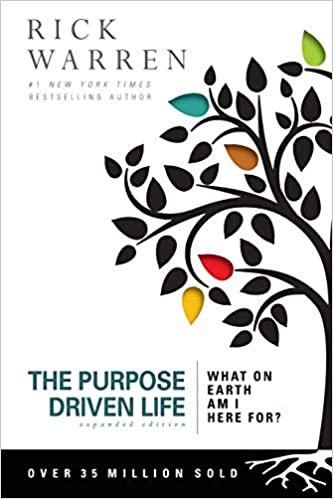Throughout our lives, everyone — movies, shows, books, courses, and coaches — all claims that each one of us has that one perfect reason for existing. Our “purpose.”
And they tell us that everything will make sense once we find it. The world will be righted, and we can finally feel fulfilled.
This isn’t Harry Potter or the adventures of a half-demigod in mythology.
Welcome to Snapreads! Our topic for today is why searching for purpose isn’t the best use of time for everyone.
No prophecy is going to come down and tell you what to do, and nothing will just “click” into place, nor is trying to search for it your entire life logical. Your life purpose will come to you, not the opposite. Forcing it is just wasting your time.
Think about this: how many people do you know who are completely confident in why they’re here in this life? How many people do you know who are absolutely sure that they are doing what they’re meant to do?
The people we know are just as human and flawed as we are. They question their life choices, what they’re doing, where they’re going, and will probably even briefly regret where they are.

The Purpose Driven Life
by Rick Warren
⏱ 12 minutes reading time
🎧 Audio version available
Philosophers’ Opinions
A lot of philosophers completely shun the idea of a fixed purpose. They believe that we have everything we need for a meaningful existence at our fingertips, or their opinions fall somewhere in between.
According to 19th-century philosopher Friedrich Nietzsche, the answer to what is meaning in the first place is redundant.
He believed that the question itself lacked meaning because while we’re living, we are in no position to determine whether our lives matter, and he thought that stepping outside of the process of existence was impossible.
The other philosophers who held different opinions can be divided into several groups. Some believed that only a deity can provide purpose.
Others’ opinions fall into subjective and objective categories.
The first group of philosophers argued whether or not the human mind is capable of making meaning. Those who held objective points of view determined that only absolute truths hold value, but they never agreed about what they are.
Some said that creativity offers purpose, while others firmly believed that living a moral life was the purpose and meaning we need.
Those who held subjective points of view believed that this entire question was too narrow. If meaning is something that occurs through cognition, then it could, and should, come from any number of sources.
Who and where we are at any given moment are what determine the value of any given activity. In essence, life is meaningful, but its value is determined by us in our minds — and that value is subject to change.
Sixth-century Chinese sage Lao Tzu, who’s credited with writing the Tao Te Ching before he escaped civilization and chose to live in solitude in the mountains, believed that it’s the universe that determines our values.
To Lao Tzu, goals are insignificant, and accomplishments don’t make our lives matter. Tzu believed that meaning comes from being a product of the world and that no effort is necessary.
For those lost in search of a purpose, Tzu suggests that life only matters because we exist. Sometimes, life can be brutal, but it’s perseverance that gives it meaning. He says, “One who persists is a person of purpose.”
Related: You’re Never too Old to Start Your Spiritual Journey and Find Your Purpose
It’s a Myth
The thing about searching for purpose is that most people never end up finding it — at least not in the strict way they think. It does more harm than good when you tell someone that there is only one thing and one purpose for which they were put on this Earth.
It’s the same as telling people that there is only one ideal person for them that they’ll just fall in love with at first sight. In order not to drive ourselves insane with the search for such a perfect thing, the best thing you can do is to try not to think on a scale this large.
When you tell people that in order to be fulfilled, they need a purpose, they then feel empty until they find it. This is why “searching for purpose” is a tool used as a marketing tactic in the self-improvement industry.
There are studies that prove that trying too hard to be happy actually ends up having the opposite of the desired result. Searching for purpose can make you feel worse.
You’re Wasting Your Time
It’s counterproductive to spend all your time thinking about that sweet moment when you finally find your meaning in life. But if you sit around waiting for a purpose to show up with a large sign in your life, then you’re just wasting your time.
It’s a much better use of your time to give purpose to other things in your life.
It’s Limiting
The “purpose” paradigm is a limiting concept when you think about it. While taking up so much of our time, it doesn’t even take into account the rest of the world.
Throughout our lives, our journeys are bound to change, our paths are going to go off-track, and our personalities are going to change so that purpose is going to change as well.
If you’re firmly convinced that you have a specific purpose, the more persistent you are in adhering to it, the less flexible you are when it comes to experiencing life to the fullest.
This is even worse if you’re young. No one finds their purpose when they’re a teenager or when they’re barely passing that stage. They have found a purpose.
It’s an impossible feat to have a set statement and mission that you can keep up with throughout your entire life. If you dedicate your time to just this, everything else you’re doing is just filtered down to the point of being meaningless.
It’s Not Something You Find
This phenomenon of believing that purpose is a thing that you find can be attributed to this famous, “inspiring” Mark Twain quote, “The two most important days in your life are the day you are born, and the day you find out why.”
This mindset results in people thinking that they’re just going through the motions of life until they find a higher calling.
The average person, whether a teenager in high school, a college student, or a middle-aged employee stuck in an unfulfilling job, then searching for something that will magically give life meaning is more likely to end with feeling frustrated rather than fulfilled.
It’s Not Stable
Throughout our lifetimes, what gives our lives meaning and brings us joy changes. From childhood to adulthood, to parenthood, and to being retirees, it’s inevitable that we change our minds.
So when that job you thought was your purpose suddenly stops being fulfilling, you’re evolving past that original source of purpose. And it’s not coming from a lack of commitment or a careless nature; this is natural.
Just as different things brought us joy in different periods of our lives, the sources of purpose can and do change over time. What you think is your purpose at 20 will dramatically change ten years later. And the same goes for almost everyone else you meet.
So how are you supposed to find it?
That’s not the question you need to ask. What we should be doing is filling everything we do with purpose. We should be allowing for multiple sources of meaning to naturally develop in our lives. And when those inevitable changes occur over time, we should go along with them.
Purpose Isn’t Just One Thing
And then it comes down to this: purpose isn’t just one single thing. Many people believe that there is an overwhelming purpose in their lives — just as Marie Curie found her purpose in science and how Mother Teresa devoted her life to the poor.
But what we don’t see is that Nobel Prize-winning Marie Curie was also a devoted mother and wife. In addition to her work, she wrote a biography of Pierre, her husband.
One of her daughters even won her own Nobel Prize. But we’re so fixated on how to fit the story of Marie Curie into our concept of purpose that we ignore everything else except the most obvious accomplishments.
Purpose is something that you’ll find in your family, your work, your faith, your community, and your hobbies. These multiple sources that provide meaning are the ones that will help us find value in our lives and in our work.
What Is Snapreads?

With the Snapreads app, you get the key insights from the best nonfiction books in minutes, not hours or days. Our experts transform these books into quick, memorable, easy-to-understand insights you can read when you have the time or listen to them on the go.


